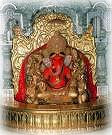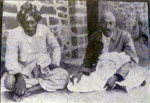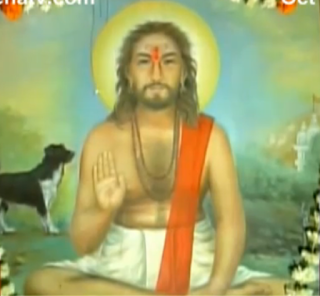The song anandvada cidghana vastu na kanda I saw the absolute being which is pure and integral consciousness and bliss is by Nagalinga the saint of Navalgund in dharwar district.The poet Nagaling flourished in the middle of the last century.. We have discussed another important song of Nagalinga elsewhere,namely Yogigala lile pathawidu. this is the sportive path of the yogis.He is said to have had occult powers and therefore to have disappeared from the prison and appeared outside it even when all the doors were closed.
In the song under consideration.he describes very graphically
the multifarious and rich experiences he had in his spiritual life.I have seen the form of god says the poet. which was a solid embodiment of bliss and consciousness(Anandvada chidghana Vastu)I have seen the sunlight without the sun.It is only when one loses ones bodily consciousness that one attaihs to the state of self -realisation and visualises his own self .tanu allda tanna tadrupa maneyalli.. it is ones pious actions which lead to such an experience.The poet further says inside the ring of the heart,there is a blue mirror Inside which there is a circle. What is it that plays sportively whthin that circle?asks the poet .mandaladolagaduwadenamma He further tells us that he attained to the invaluable and beautiful form of god,when he reached the unmani or purely self conscious state by the grace of his Teacher. seriunmaniyolu
guruvinapunyadighana vastudorakituenagamma. The saint proceeds to describe some unique spiritual experiences I saw a Vata tree he tells us in the middle of the water. There were no flowers and yet there were small and tender as also ripe fruits on it and they were full of juice .Hivilla midigayi hannamma. In the illimitable dense forest that he saw in his vision There was a pitcher overflowing with nectar and the poet declares that he was leading a blissful and happy life by enjoying it time and again akhanda vannadolu amrut koda ukkiundundusukhisibaluvellama. What he saw in his vision was not Kailasa there were no ornaments of gold on the body of the god there .ie it was not Vaikuntha and yet what was it that moved sportively in the unlimited space there bailolagaduvadenamma. He finely confess it was due to the grace of his spiritual Teacher that he attained to the final and unchanging liberation Sthiramukti
the multifarious and rich experiences he had in his spiritual life.I have seen the form of god says the poet. which was a solid embodiment of bliss and consciousness(Anandvada chidghana Vastu)I have seen the sunlight without the sun.It is only when one loses ones bodily consciousness that one attaihs to the state of self -realisation and visualises his own self .tanu allda tanna tadrupa maneyalli.. it is ones pious actions which lead to such an experience.The poet further says inside the ring of the heart,there is a blue mirror Inside which there is a circle. What is it that plays sportively whthin that circle?asks the poet .mandaladolagaduwadenamma He further tells us that he attained to the invaluable and beautiful form of god,when he reached the unmani or purely self conscious state by the grace of his Teacher. seriunmaniyolu
guruvinapunyadighana vastudorakituenagamma. The saint proceeds to describe some unique spiritual experiences I saw a Vata tree he tells us in the middle of the water. There were no flowers and yet there were small and tender as also ripe fruits on it and they were full of juice .Hivilla midigayi hannamma. In the illimitable dense forest that he saw in his vision There was a pitcher overflowing with nectar and the poet declares that he was leading a blissful and happy life by enjoying it time and again akhanda vannadolu amrut koda ukkiundundusukhisibaluvellama. What he saw in his vision was not Kailasa there were no ornaments of gold on the body of the god there .ie it was not Vaikuntha and yet what was it that moved sportively in the unlimited space there bailolagaduvadenamma. He finely confess it was due to the grace of his spiritual Teacher that he attained to the final and unchanging liberation Sthiramukti
Pathway To God in Kannada Literature page no256-257













